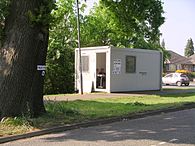
Back Élections locales britanniques de 2007 French Eleições municipais na Inglaterra (2007) Portuguese
| |||||||||||||||||||||||||||||||||||||||||||||||||||||||||||||||||||||||
All 36 metropolitan boroughs, 45 out of 46 unitary authorities, 231 out of 238 English districts, all 32 Scottish council areas, and 3 directly elected mayors | |||||||||||||||||||||||||||||||||||||||||||||||||||||||||||||||||||||||
|---|---|---|---|---|---|---|---|---|---|---|---|---|---|---|---|---|---|---|---|---|---|---|---|---|---|---|---|---|---|---|---|---|---|---|---|---|---|---|---|---|---|---|---|---|---|---|---|---|---|---|---|---|---|---|---|---|---|---|---|---|---|---|---|---|---|---|---|---|---|---|---|
| |||||||||||||||||||||||||||||||||||||||||||||||||||||||||||||||||||||||
 Colours denote the winning party, as shown in the main table of results. | |||||||||||||||||||||||||||||||||||||||||||||||||||||||||||||||||||||||


The 2007 United Kingdom local elections were held on Thursday 3 May 2007. These elections took place in most of England and all of Scotland. There were no local government elections in Wales though the Welsh Assembly had a general election on the same day. There were no local government elections in Northern Ireland. Just over half of English councils and almost all the Scottish councils began the counts on Friday, rather than Thursday night, because of more complex arrangements regarding postal votes.
These elections were a landmark in the United Kingdom as it was the first time that 18- to 20-year-olds could stand as candidates for council seats. The change was due to an alteration of the Electoral Administration Act. At least fourteen 18- to 20-year-olds are known to have stood as candidates for council seats[1] and as a result William Lloyd became the youngest person to be elected to official office in Britain. There were also a number of councils which used new voting methods such as internet and telephone voting in addition to the traditional methods of polling stations and postal votes.
These were the final elections to be overseen by Labour leader and prime minister Tony Blair, who resigned the following month after a decade as prime minister to be succeeded by chancellor Gordon Brown. His party only finished in second place with a narrow lead over the third-placed Liberal Democrats, whose leader Menzies Campbell would also resign later in the year, while it was a strong showing for the Conservatives under David Cameron.
- ^ "Teenagers to run as councillors". BBC News. 4 April 2007.



